November 1984
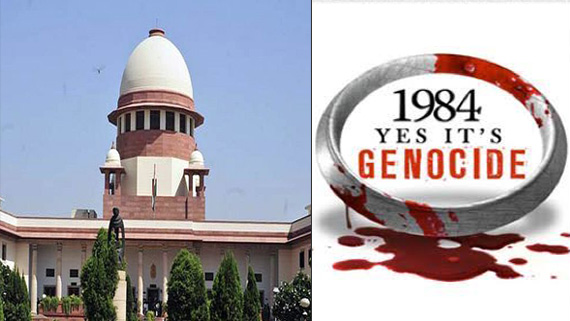
Indian Supreme Court Grants Bail to 34 Convicts in 1984 Sikh Genocide Related Case
The Supreme Court of India today granted bail to 34 persons convicted in a case related to 1984 Sikh Genocide. The convicts were sentenced to five years imprisonment for "rioting and arson" during the 1984 Sikh genocide in Delhi's Trilokpuri area. The conviction and sentence by trial court was upheld by Delhi High Court. It is notable that genocide is not recognized as a crime in Indian law.
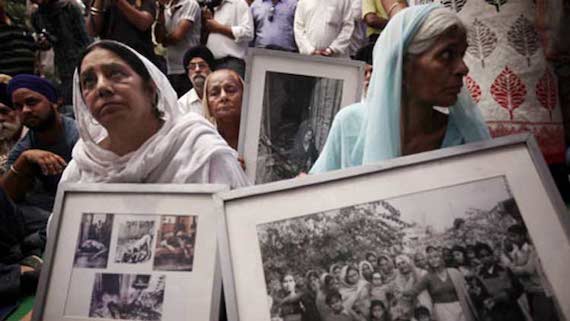
After 34 Years, UP Government Sets up SIT to Probe Cases of 1984 Sikh Genocide in Kanpur
The state government on Tuesday constituted a four-member Special Investigation Team (SIT) to probe cases related to the Sikh Genocide of 1984 in Kanpur. The information in this regard was disclosed by principal secretary, Home, Arvind Kumar.
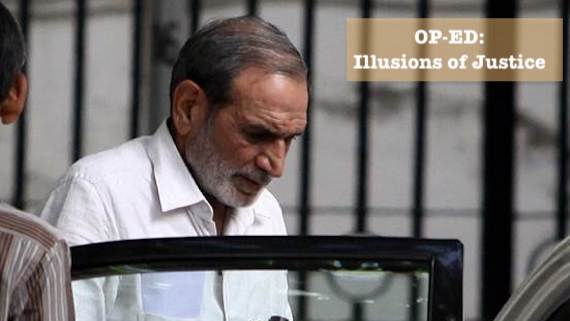
OP-ED: The Illusion of Justice
The recent life sentencing of Sajjan Kumar in a 1984 genocide case is being hailed as a landmark judgement by the Indian State’s various institutions vis-a-viz Media, Judiciary & Political parties.

Sajjan Kumar to be Kept Away from Sikh Inmates in Mandoli Jail
Sikh genocide 1984 convict Sajjan Kumar will be kept away from Sikh inmates in Mandoli Jail complex. The jail authorities say that it was a precautionary measure to prevent any possible attack on Indian politician who had led genocidal massacre of Sikhs in Delhi in November 1984.

Dal Khalsa Remembers Bhai Harjinder Singh Jinda & Other Sikh Warriors as Sajjan Kumar Goes to Jail
Welcoming convicted Congress leader and Sikh Genocide 1984 convict Sajjan Kumar landing in jail for life for committing inhuman crimes, the Dal Khalsa, in a a statement hoped to see all conspirators of the November 1984 killings brought to justice in 2019.

1984 Sikh Genocide Convicts Sajjan Kumar, Mahinder Yadav and Krishan Khokhar Surrenders
Sikh Genocide 1984 convicts Sajjan Kumar, Mahinder Yadav and Krishan Khokhar surrendered before a Delhi court today.

Sikhs Slam Yogi Government for Failing to Submit Information on Sikhs Massacred in Kanpur During 1984 Sikh Genocide
The Yogi Adityanath-led BJP government in Uttar Pradesh has drawn flak from All India Riot Victim Relief Committee (AIRVRC) for not submitting the affidavits regarding the status report on the massacres of 127 Sikhs in Kanpur during the 1984 Sikh Genocide.

SIT Want Public to Provide Information About 80 Cases of 1984 Sikh Genocide within “2 Weeks”
The Special Investigation Team (SIT) constituted under the order of Indian Supreme Court dated 4th December, 2018 in the matter of S. Gurlad Singh Kahlon Vs. Union of India & Ors. vide Writ Petition (Crl. No. 9/2016) has invited the attention of general public for seeking information in respect of 80 cases related to 1984 Sikh genocide.

1984 Sikh Genocide: Convicted Indian Politician Sajjan Kumar Likely to Surrender on December 31
As per media report convicted Indian politician Sajjan Kumar is expected to surrender before a Delhi court on December 31 to serve the life imprisonment awarded to him by Delhi High Court in a 1984 Sikh genocide related case.

Sajjan Kumar Moves Indian Supreme Court Against Conviction in 1984 Sikh Genocide Case
Convicted Indian politician Sajjan Kumar today (Dec. 22) moved the Supreme Court challenging his conviction in a case related to 1984 Sikh Genocide by the Delhi High Court.
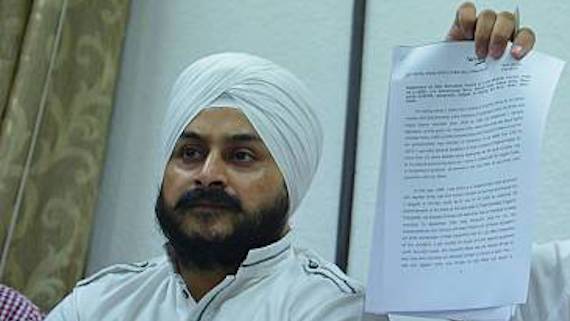
Delhi State Assembly Passes Resolution Condemning 1984 Sikh Genocide; Demands to Strip Rajiv Gandhi of Bharat Rattan Award
The state assembly of Delhi yesterday passed a resolution condemning the 1984 Sikh Genocide. The Sikh Siyasat News (SSN) was not able to secure a copy of the resolution till the time of writing this news but it is confirmed that the state assembly recognised the 1984 Sikh Genocide as 'genocide'.
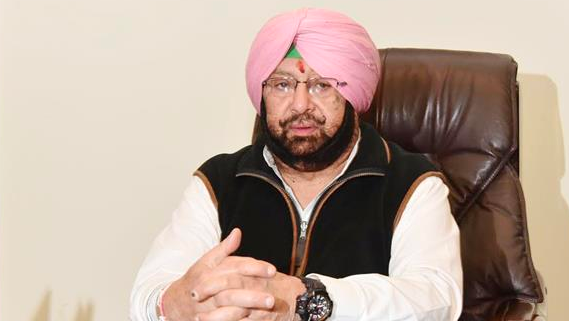
Defending 1984 Sikh Genocide Perpetrators, CM Amarinder Singh Says Gandhi Family is “Innocent”
Punjab Chief Minister Amarinder Singh has once again attempted to shield his political masters in relation to 1984 Sikh genocide. In a written statement issued today (copy available with Sikh Siyasat News), Capt. Amarinder Singh has said that Gandhi family was innocent and in 1984 Sikh genocide (Amarinder Singh used term "1984 riot") in which only a few individual Congress leaders were involved without any support, covert or overt, by the party leadership.

Sentencing And “Relief” for Sajjan Kumar, A Wakeup Call for Indian Minorities: OFMI
Thirty-four years after India’s Sikh community suffered a genocide in November 1984, former Member of Parliament (MP) Sajjan Kumar became the first of several accused MPs to be convicted for his role in the killings.
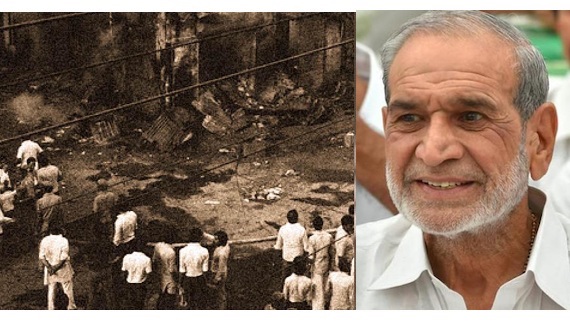
US Sikh body Welcomes Sajjan Kumar’s Sentencing; Demands Prosecution of Kamal Nath and Amitabh Bachhan
The Sikh Coordination Committee East Coast (SCCEC) has welcomed the conviction of Sajjan Kumar in 1984 Sikh Genocide case announced by the Delhi High Court.
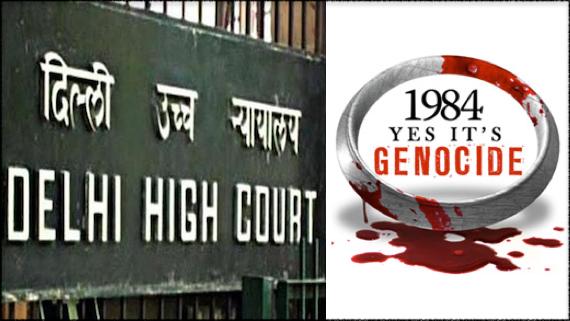
Delhi High Court Stops at “Crimes Against Humanity” in CBI v Sajjan Kumar
For past three decades the 1984 Sikh genocide was labeled as "riots" by the Indian state, more specifically the government, judiciary and the media propagated that the 1984 killings of Sikhs were "riots".

After 34 Years: Sikh Genocide Instigator Sajjan Kumar Sentenced to Imprisonment for Life
The High Court pronounced Sajjan Kumar guilty for instigating massacre of Sikhs during November 1984 Sikh Genocide and sentenced him to imprisonment for life.
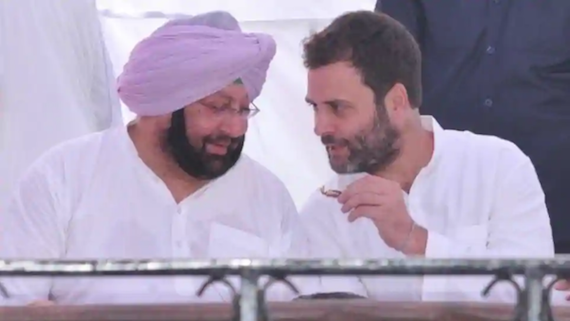
Punjab CM Amarinder Singh Defends Sikh Genocide 1984 Suspect Kamal Nath
Punjab CM Amarinder Singh has defended 1984 Sikh Genocide suspect Kamal Nath once again. In a written statement issued on December 14 (copy with SSN) Congress CM in Punjab says that reference to Kamal Nath in Nanawati Commission report was not a proof of his involvement in "1984 riots".
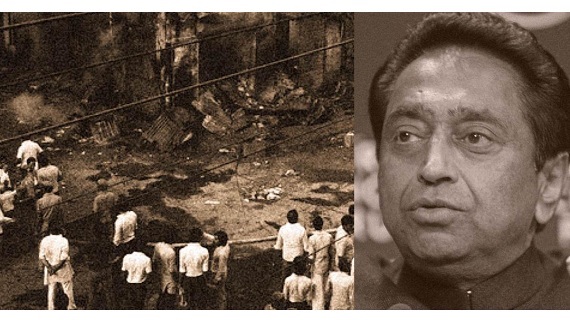
Sikhs Outraged with Selection of Sikh Genocide Suspect Kamal Nath as Madhya Pradesh CM
The global Sikh community has expressed outrage of selection of Kalam Nath as Chief Minister of Madhya Pradesh (MP) State of the Indian subcontinent by the Indian National Congress (INC). Kalam Nath faces allegations of instigating genocidal violence against the Sikhs during November 1984.
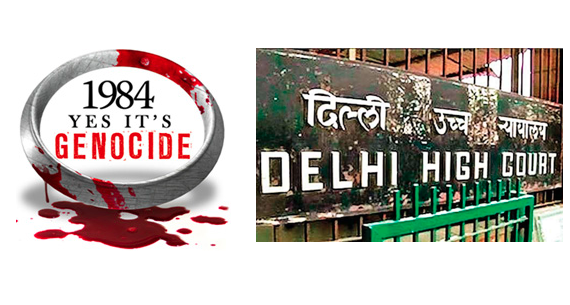
“… Genocide… Has been Duly Proved and Established”: says Delhi High Court Judgement on 1984 Sikh Genocide Related Case
In another setback to Indian state's denial tactics to deny the fact of 1984 Sikh genocide, a judgement of the Delhi High Court, delivered recently, clearly uses the term 'genocide' while referring to the events related to 1984 Sikh genocide.
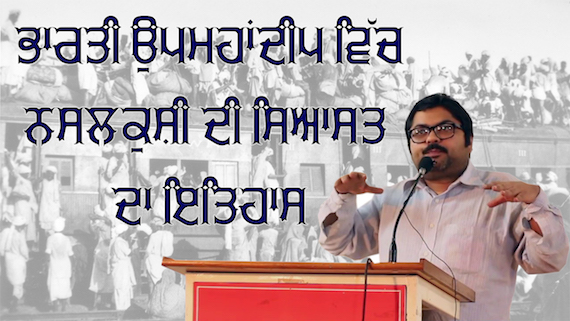
The History of Genocidal Politics in the World and Indian Subcontinent: Dr. Garga Chatterjee
Speaking during aa Seminar on "Phenomena of Genocide" at Panjab University Chandigarh on November 15, 2018 Dr. Garga Chatterjee shared his views on the topic of “History Of Genocidal Politics In Sub Continent and the World’’.
« Previous Page — Next Page »








